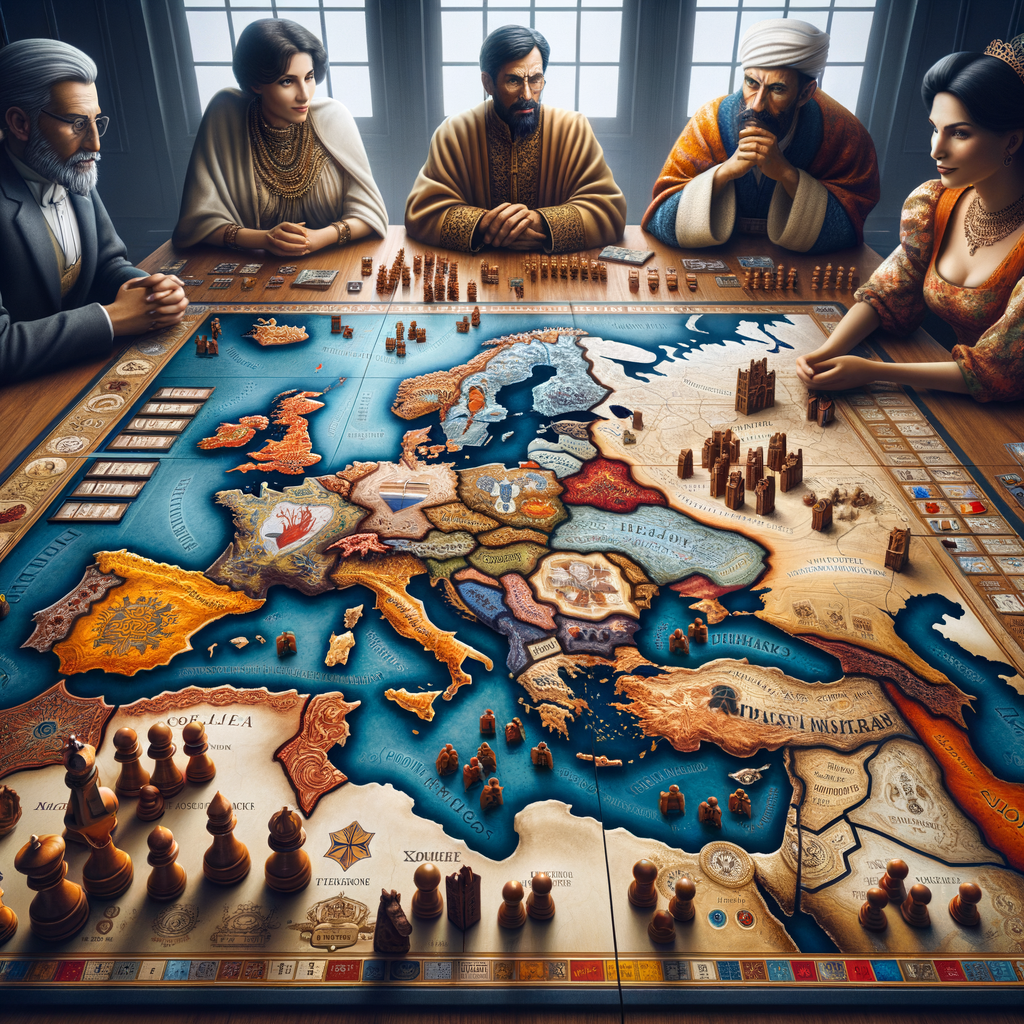Title: Mastering the Art of Diplomacy: A Comprehensive Guide
Content:
Understanding the Basics of Diplomacy
Diplomacy is more than just a board game; it’s a strategic dance of alliances, betrayal, and negotiation. Unlike other war games, it emphasizes interpersonal skills over dice rolls. Players assume the roles of major European powers in the early 20th century, vying for control without the randomness of chance. To succeed, players must engage in open dialogue, form strategic alliances, and, when necessary, deceive their opponents.
The Importance of Negotiation
At the heart of Diplomacy lies negotiation. Unlike other games where you can rely on luck or sheer power, Diplomacy demands that you be convincing, persuasive, and sometimes cunning. It’s crucial to establish trust with your allies while keeping a wary eye on potential betrayals. Successful negotiation involves understanding the motives of other players, offering mutually beneficial deals, and sometimes making promises you may not keep.
Strategies for Building Alliances
One of the most effective strategies in Diplomacy is forming alliances. These partnerships can provide security and shared resources, making you a formidable force on the board. However, alliances are double-edged swords. While they can offer strength, they also require constant maintenance and trust. Be selective with your alliances, ensuring they align with your long-term goals. Remember, in Diplomacy, today’s friend could be tomorrow’s foe.
Tactics for Expansion
Expanding your territory is essential for victory in Diplomacy. Begin by securing your home centers, then look for opportunities to capture neutral territories. It’s important to plan your expansions carefully, considering both geographical advantages and potential threats from other players. Use your alliances strategically to support your expansion efforts, but always be prepared for the possibility of betrayal.
Dealing with Betrayal
Betrayal is an inevitable part of Diplomacy. At some point, you will likely be on the receiving end of a double-cross. When this happens, it’s important to stay calm and reassess your strategy. Use betrayal as an opportunity to strengthen your position by forming new alliances or shifting your focus. Remember, revenge can be a powerful motivator, but it’s often more effective to use betrayal to your advantage rather than seeking immediate retribution.
Advanced Tips for Experienced Players
For those who have mastered the basics, advanced strategies can elevate your game to new heights. Consider employing psychological tactics to manipulate your opponents, such as feigning weakness or sowing discord among their alliances. Additionally, mastering the art of timing is crucial; knowing when to strike and when to retreat can make the difference between victory and defeat. Always stay adaptable, ready to change your strategy as the game evolves.
Conclusion: The Path to Victory
Diplomacy is a game of intellect, strategy, and social prowess. Success requires a delicate balance of cooperation and competition, trust and deception. By mastering negotiation, forming strategic alliances, and anticipating betrayal, you can navigate the complex landscape of Diplomacy and emerge victorious. Whether you’re a newcomer or a seasoned player, this guide provides the foundation for honing your skills and becoming a master of Diplomacy.

